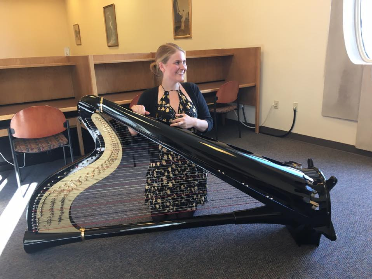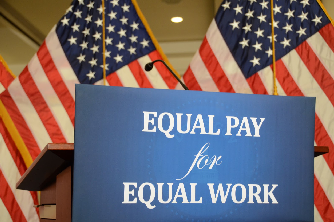It’s 2016 and equal pay for woman still isn’t a reality in Colorado, let alone the United States.
In Colorado women are making roughly $762 a week compared to the $978 men are making. While the average woman in Colorado is making more than the average female does in the United States, she still sees a significantly smaller salary than a man.
What’s going on?
On average women all over the nation are getting paid $706 per week and men are getting $860. These numbers show that the cents in between add up and are extremely damaging to women who need to support themselves and their families.
It’s more than just the gap in salary of a man and a woman working the same job, it’s discrimination as well. It’s actually legal in 28 states to ask a woman during an interview whether or not she is a single parent or if they are married.
Where does Colorado stand?
In 2004 women made 78.7% of what their male counterparts made in a year. It is now 2016, 12 years later than when that statistic was presented, and that percentage has only increased a little. Women are now making 80 cents to every dollar a man in the same job makes. This disparity is even worse for women of color.

(80 cents to a $1 pictured here)
The issue is often silenced, however, there are many organizations working nationally like the National Committee on Pay Equity. In Denver there are groups working on either funding other orgs that are trying to expedite the process of equal pay like the Chinook Fund, or are directly working with the issue every day 9 to 5 org, and the Women’s Foundation of Colorado.
“I mean I hate it, it’s frustrating. It’s about time, it’s 2016. I think that organizations who work with these issues need help from outside people like us, it’s not all on them to make the change,” states Becca Shaefer 20, a junior at DU.
Becca elaborates, “Just because someone is out there working on improving our lives doesn’t mean we can just sit back on autopilot. I think it’s really easy for people to get lazy and we just need to remember that this is our fight too,” by touching on organizations, their reach/community involvement, and what young women ought to do.

(Becca, a junior and Lamont Music School student at DU)
Unequal pay happening inside the University of Denver
Unequal pay is felt nationally, locally in Colorado, and even in places where you wouldn’t expect it such as a private university made up of educated faculty.
The ongoing case of Professor Marsh, a professor at the University of Denver, sheds light on the somewhat hidden issue at Denver’s private university. Marsh filed a charge of discrimination against the Sturm College of Law for paying her less than her male co workers who were doing the same amount of work as she was.
Dani Koelling, 21 and a junior at DU feels personally about this issue. “I mean isn’t this so obvious? Why would people ever get to thinking that it’s logical to have women make less for the same job? I honestly can’t wrap my mind around it and it’s sort of embarrassing to be tied to a school that’s involved with something as sexist as that. I thought we were better, I guess not” she said. Dani’s feelings are only one example of the frustrations young women all around the nation are feeling.
University students and faculty are supposed to be educated and aware of such injustices and to use their power and knowledge to work against them. It surprises DU students to find out that their University is not leading a good example in some of the issues they feel strongly for.
Hey America, what does the future hold?
According to Michele Leber from the National Committee on Pay Equity, “The institute for Women’s Policy Research’s latest estimate is that it will take until 2058” for equal pay to be totally implemented. Women of the millennial generation will have to experience roughly 4 more decades until equal pay is probable. To say that’s a long period of time to have to go for an issue that has been brought to people’s attention and discussed since roughly 1869 is an understatement.
The next step for women of this generation is to “support and work for legislative change, on the local, state, and federal level,” says Leber. Women and men of this generation especially, need to draw attention to the issue and work actively against it.

(photo creds: House Democrat, https://www.flickr.com/photos/housedemocrats/13719010845)
